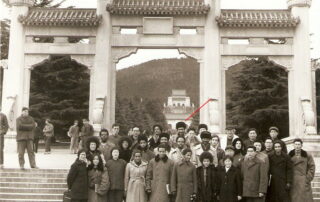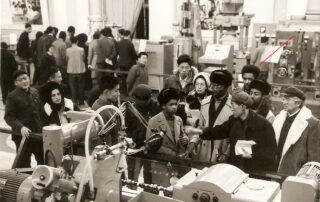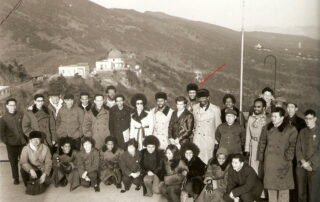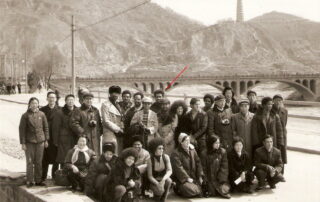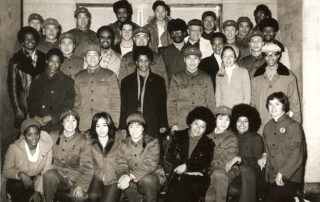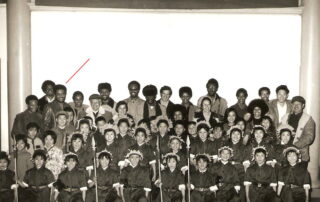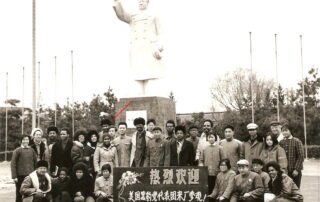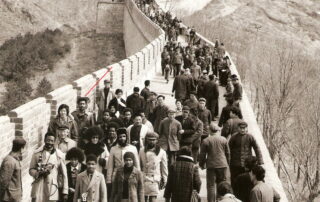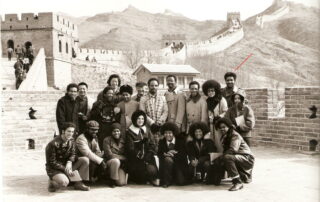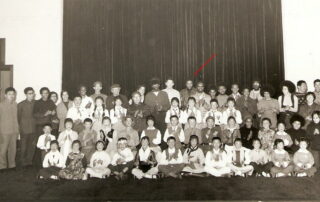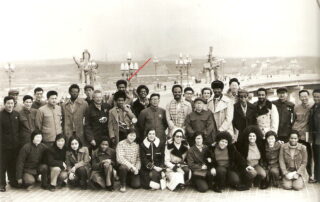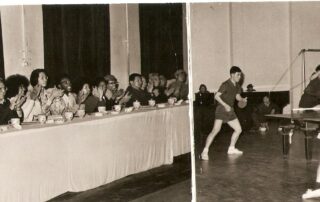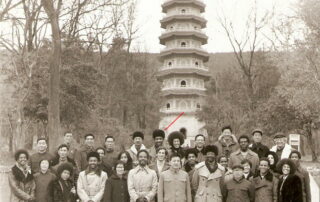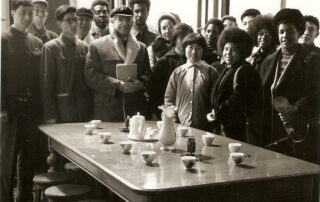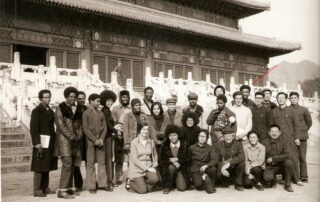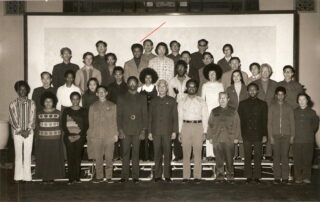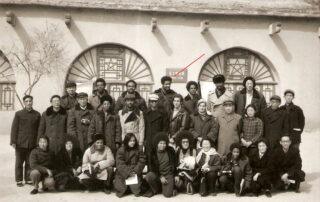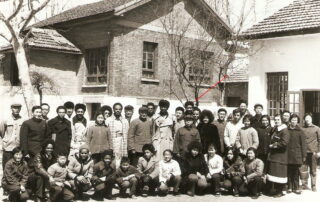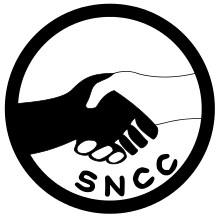
1964 joined the SNCC (Student Nonviolent Coordinating Committee) and Mississippi Freedom Democratic Party
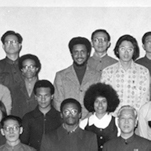
1971 Became the physician of the BPP Oakland Chapter
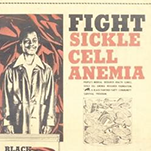
1971 Co-founded the Sickle Cell Anemia Research Foundation
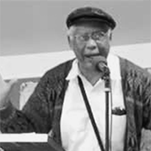
Present: Bert still fights against racism and social injustices with poetry
Meeting with the Black Panther Party
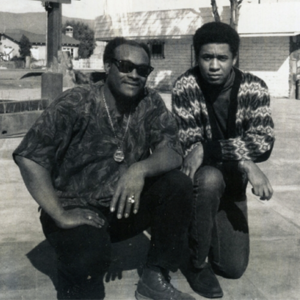 Dr. Small’s civil rights fight started before he entered the medical profession. In 1961 he “raised hell and high water” when he co-founded the student chapter of the NAACP at the University of Detroit. He helped raise money for Mississippi freedom workers as a member of Friends of SNCC (Student Non-violent Coordinating Committee). He spent a week at the 1964 Democratic Convention trying to get the Democrats to recognize the Mississippi Freedom Democratic Party.
Dr. Small’s civil rights fight started before he entered the medical profession. In 1961 he “raised hell and high water” when he co-founded the student chapter of the NAACP at the University of Detroit. He helped raise money for Mississippi freedom workers as a member of Friends of SNCC (Student Non-violent Coordinating Committee). He spent a week at the 1964 Democratic Convention trying to get the Democrats to recognize the Mississippi Freedom Democratic Party.
This was the beginning of a Journey that took him to the west coast and eventually to the doorstep of the Black Panther Party. Bert heard about all the social and community services the BPP were offering and wanted to volunteer his medical services. Once in Oakland, Small hooked up with Oakland Direct Action Committee, headed by civil rights activist Mark Comfort, who introduced Bobby Seale and Huey Newton to the Black Panthers emblem used by the Lowndes County Freedom Organization in Alabama.
One day in 1970, Small told his friend Comfort that he planned to offer his medical services to the party.
“I left my phone number with June Hilliard; the next day the FBI called Dr. Nelson (Small’s boss at Highland Hospital), and told them I was working for the Black Panthers Party,” Small recalled with a smile. “But they called David Nelson, the wrong Dr. Nelson.”
He became the Black Panther Party physician in 1971 although never officially joining the organization. His service to the Black Panthers lasted four years. He made house calls on both sides of San Francisco Bay and visited party members imprisoned at San Quentin and Folsom State prisons.
Bobby Seale and Huey Newton founded the Sickle Cell Anemia Research Foundation in which Bert became the medical director. Bert acted as a link between the Black Panther Party and sickle cell awareness. “Bobby [Seale] came out with the term ‘Black genocide,'” Small said about how the founders of the Black Panther Party referred to sickle cell disease.
The following excerpt comes from the USC Annenberg Center for Health Journalism “Sickle Cell: The Last Health Care Frontier for Black Lives
“Small took out editions of The Black Panther, the official newspaper of the party, with cover stories about sickle cell. The Black Panthers opened community health clinics, including one in Berkeley that Small helped start, the George Jackson Free Clinic, which was one of the first to offer sickle cell screening.
“He was one of the rare doctors actively taking care of adult sickle cell patients,” Vichinsky said about Small. “He remains a historical figure for sickle cell disease over the decades.”
As the Black Panthers grew to 44 chapters and 14 free clinics across the country, they continued to advocate for sickle cell awareness. Each clinic screened for sickle cell, and some of the chapters without clinics did so as well. “They were the first wave, nationally, of sickle cell awareness. Given their resources, they did more than anybody,” Vichinksy added.
“They were very popular at the time. It was kind of the heyday of sickle cell [awareness] in my mind,” said Keith Quirolo, the former director of Pediatric Sickle Cell Program and Apheresis Program at UCSF Benioff Children’s Hospital Oakland.
Working with the Black Panther Party, Dr. Tolbert Small helped spread awareness and treatment of sickle cell.
The grassroots approach within the community paid off: Small believes that the Panthers’ high profile in mainstream media — their main image being Black folks carrying guns, not the social service programs such as free breakfast and free health-care — helped put pressure on Congress and President Richard Nixon to sign off on legislation to fund sickle cell centers nationwide.”
The BPP in China
In 1970, and against the U.S. government’s restrictions, the Black Panther Party accepted an invitation to visit China. Huey Newton was heavily influenced by Maoist philosophies and wanted to see for himself a “free and liberated territory with a socialist government” so in 1971 a group from the BPP took the journey. Tolbert Small was part of the Panther group making the trip.
Activism Today
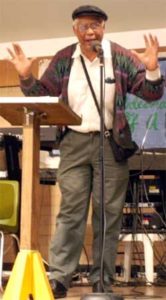 Bert is still advocating for social equality today through his poetry. With over 150 poems to date, his voice is strong and he doesn’t plan on giving up anytime soon. As long as people are being treated unfairly, Bert will be speaking out against it and wants as many people as possible to join him. How can you help? Give to Non-Profits that help underpriviliged communities, speak up against inequality whenever and wherever you see it, and join us in the fight!
Bert is still advocating for social equality today through his poetry. With over 150 poems to date, his voice is strong and he doesn’t plan on giving up anytime soon. As long as people are being treated unfairly, Bert will be speaking out against it and wants as many people as possible to join him. How can you help? Give to Non-Profits that help underpriviliged communities, speak up against inequality whenever and wherever you see it, and join us in the fight!

